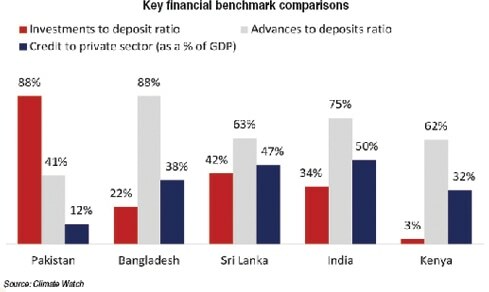LONDON, Nov 18: Freight shipping prices for transporting dry raw materials collapsed in November, slammed by the global financial crisis, slowing economic growth and falling commodity prices, industry experts said.
The Baltic Dry Index, an indicator of economic trends which tracks the cost of moving goods such as coal, iron ore and grain across the oceans, has slumped over the past five months.
The index hit a record high of 11,793 points in May but has since fallen back to earth, hitting just 815 points last week -- the lowest level since the end of 1999.
“The freight market has borne the brunt of both the financial sector crisis and the ensuing economic downturn,” said analysts at British-based emerging markets bank Standard Chartered.
“Anecdotal reports suggest a significant part of this has been due to difficulty in arranging trade finance as a result of the credit crunch rather than lack of demand,” they said.
“Demand for commodities has also undeniably slowed, particularly for iron ore into China, which has an overwhelming impact on the dry freight market.”
Meanwhile, the Baltic Panamax Index, comprising of seven dry bulk routes, nosedived to 662 points last week -- the lowest level since its creation in 1998 and compared with a record high 11,425 points five months ago.
Georgi Slavov, head of dry freight research at ICAP Shipping in London, said freight prices sank because steelmaking companies, hit by falling prices, have sought to slash their transportation costs.
“The first trigger for the collapse of dry bulk freight rates was the sharp sell-off across the commodity sector, the most important for the short-term freight market being the steel price,” Slavov told AFP.
“The fall, which began at the beginning of June, squeezed first the profit margins of producers since they faced fixed high raw material costs and falling prices for their finished products.
“This was followed shortly by a squeeze of freight (costs) as they tried to pass the pressure from the profit margins to the freight market.”
Meanwhile, the chronic global financial crisis and slowing economic growth have ravaged demand for cargo ships.
Sverre Svenning, director of Fearnley Consultants shipbrokers, said demand has been slashed because the global credit squeeze made it very difficult for buyers to attract funding.
“The buyers don’t get credit, so they can’t buy the commodity ... (and) they don’t need any ships,” Svenning said. “It’s definitely a reflection of the crisis affecting the real economy.”
The UN Conference on Trade and Development (Unctad) said earlier this month that the financial crisis had begun to affect international trade, noting sharp falls to key shipping indices.
The UN agency said in its annual maritime transport review that the world's merchant fleet had expanded to a record 1.12 billion deadweight tons, with the order book for new vessels reaching a peak of 10,053 ships in 2008.
However, from mid-2008, companies were cancelling new ships on order.
Svenning said “it’s a lack of demand. Lots of people are stuck with high (commodity) inventories with high costs and they are simply sitting tight at doing nothing right now.
“So there has been an imbalance between supply of transportation capacity and demand for this transportation capacity.”
—AFP













































Dear visitor, the comments section is undergoing an overhaul and will return soon.